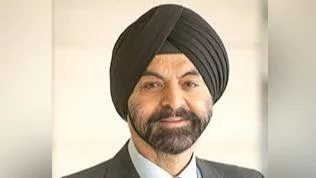Biodiversity sustains human life by helping keep air and water clean and providing nutritious food. Every plant and animal, regardless of size, plays a crucial part in ecosystems, the health of which depends on how humans manage biodiversity.
Forests are vital to Moldova’s economy and environmental wellbeing, as well as its path to EU membership. They provide shelter to 80% of the country’s biological diversity, create jobs, protect against storms and floods, and are part of the nation’s identity.
"In Moldova, forests, if managed properly, are the source of abundance for local communities. Restored forests can become ecologically stable landscapes allowing farmers to have no fear in the face of climate change and severe weather events,” highlights Ana Benoliel Coutinho, National Farm to Fork and Agroecology Expert with Gradina Moldovei. However, Moldova’s forests have been facing unprecedented degradation due to excessive harvesting, unsustainable forest management practices, and displacement of native species by invasive ones. Such loss endangers communities to the impacts of climate change and water scarcity since forests play a critical role in climate mitigation—acting as carbon sinks and water-resource multipliers. Investing in forests now is essential for protecting lives and livelihoods in Moldova.
The World Bank has been a long-term partner of Moldova to advance more sustainable landscape management. In 2021, the World Bank joined the EU-funded EU4Environment Programme to help Eastern Partnership (EaP) countries, including Moldova, green their economies.
As part of this effort, the World Bank has been supporting the Government of Moldova to adopt a policy framework for the National Forest Extension and Rehabilitation Program (NFERP) for 2023-2032. This initiative has garnered significant buy-in from forestry practitioners, experts, and civil society by balancing needs for forest products and services while increasing long-term resilience to climate change through conservation efforts and sustainable development of forest resources.
Under the NFERP, over the next 10 years, Moldova’s forest cover is expected to expand from 13.8% to at least 17% of the country’s territory. This will be achieved by planting new forests on 110,000 hectares and rehabilitating existing forests on 35,000 hectares of state-, communal- and privately-owned land. In addition to restoring landscapes, improving soil fertility and protecting watersheds these forest restoration activities will provide nearly 14,000 jobs to rural communities.
These efforts are also benefitting from new data and analysis. A 2023 study titled "Identification of High Conservation Value Forests in the Republic of Moldova," completed under the EU4Environment Programme provides the first comprehensive analysis of the country’s forestry sector according to Forest Stewardship Council (FSC) principles. This analysis reveals that nearly half of the country's total forest cover (175,500 hectares) consists of high conservation value forests (HCVFs), meaning they play a critical role in biodiversity conservation and provide long-term environmental benefits. Many of Moldova’s HCVFs are already covered by its system of protected areas and the Emerald Network currently comprising 61 sites across the country.
Moldova has also made strides in enhancing forest management with an amended Forest Code developed based on World Bank recommendations. The new code places greater emphasis on ecosystem integrity and increasing forest cover while creating legal avenues for landowners to manage existing forests or establish new woodlands.
"Here in southern Moldova we have less forests but they are really important," reflects Valeriu Angheluta a local agro-forester from Flocoasa village in Cantemir District "In past ten years our commune has worked on reforestation it worked well young trees coming out ground More forests mean better agricultural production more water springs more biodiversity."
Together Moldova EU World Bank finding ways better protect country biodiversity investing build resilient sustainable future all
---

